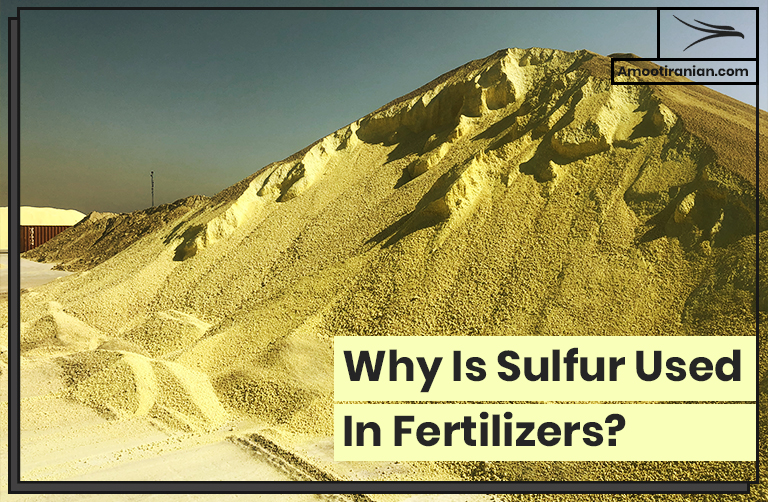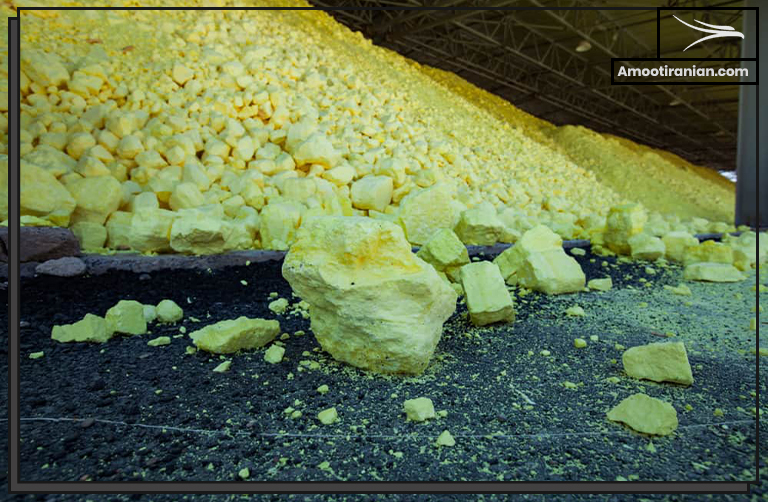.

.
Sulfur is used in fertilizers because it is an essential nutrient for plant growth and development. It helps in the formation of important amino acids and proteins, and it also helps in the synthesis of chlorophyll, which is necessary for photosynthesis. Additionally, sulfur helps to improve the soil's acidity level and aids in the absorption of other nutrients, such as nitrogen and phosphorus, by the plants.
.
Why Is Sulfur Good For Plants?
What Is The Effect Of Sulfur Fertilizer? |
1. Essential nutrient for plant growth and development |
2. Aids in the formation of important amino acids and proteins |
3. Necessary for the synthesis of chlorophyll, which is essential for photosynthesis |
4. Improves soil acidity level and helps in the absorption of other nutrients like nitrogen and phosphorus |
5. Helps in the formation of nodules on legume roots that host nitrogen-fixing bacteria |
6. Enhances the flavor and nutritional value of crops, such as onions and garlic |
7. Helps in the prevention of plant diseases and pests by promoting the production of defensive compounds in plants |
8. Facilitates the breakdown of organic matter in the soil, releasing nutrients that can be used by plants |
9. Helps in the formation of essential oils in plants, which can improve their resistance to stress factors like heat, drought, and cold |
10. Can improve the shelf life and quality of harvested crops by inhibiting the growth of fungi and bacteria |
.
Why Has The Use Of Sulphur Fertilizer Increased?
.
1. Reduced sulfur deposition
With the decrease in the use of fossil fuels and the implementation of regulations on emissions, the amount of sulfur deposited in the soil has decreased significantly.
This has led to a sulfur deficiency in many soils, especially in areas where the soil was already low in sulfur.
.
2. Increased crop yields
Studies have shown that sulfur application can increase crop yields by 10-20%, particularly in crops such as canola, corn, and wheat.
.
3. Improved soil quality
Sulfur can improve soil structure and increase water infiltration, leading to better nutrient availability and uptake by plants.
Sulfur can also stimulate microbial activity in the soil, which can improve soil health.
.
4. Increased demand for organic food
Organic agriculture relies heavily on sulfur as a fertilizer, since it is one of the few synthetic fertilizers allowed in organic production.
As the demand for organic food has increased, so has the demand for sulfur fertilizers.
.
5. Reduced use of nitrogen fertilizers
Sulfur is often applied in conjunction with nitrogen fertilizers, since it can improve nitrogen uptake by plants.
As farmers look to reduce their use of nitrogen fertilizers to address environmental concerns, the use of sulfur fertilizers has increased to maintain crop yields.
.

.
Why Is Sulphur Used In Organic Farming?
Sulfur is an effective fungicide and acaricide. It is commonly used in organic farming to control diseases like powdery mildew and pests like spider mites. Sulfur works by inhibiting the growth and reproduction of fungi and mites.
.

.
What Fertilizers Have Sulfur?
Many fertilizers contain sulfur, either as a primary nutrient or as a secondary nutrient. Here are some examples:
.
1. Elemental sulfur
This is a pure form of sulfur that can be added to the soil to provide a slow-release source of sulfur.
It is often used in low-pH soils to help reduce soil acidity and improve nutrient availability.
.
2. Sulfate fertilizers
These fertilizers contain sulfur in the form of sulfate ions, which are readily available to plants. Examples include ammonium sulfate, potassium sulfate, and magnesium sulfate (also known as Epsom salt).
.
3. Organic fertilizers
Many organic fertilizers, such as compost and manure, contain sulfur as a component. As these materials break down in the soil, they release sulfur that can be taken up by plants.
.
4. Sulfur-coated urea
This is a slow-release nitrogen fertilizer that is coated with sulfur.
As the fertilizer breaks down, the sulfur is released, providing a source of sulfur for plants.
.
5. Liquid sulfur fertilizers
These fertilizers contain sulfur in liquid form, often combined with other nutrients like nitrogen and phosphorus.
They can be applied directly to the soil or sprayed on the foliage of plants.
.
6. NPK fertilizers
NPK fertilizers, which are commonly used in agriculture and gardening, can contain sulfur as well as nitrogen, phosphorus, and potassium.
Sulfur is often included as a secondary nutrient in NPK fertilizers, as it is an important element for plant growth and development.
.

.
